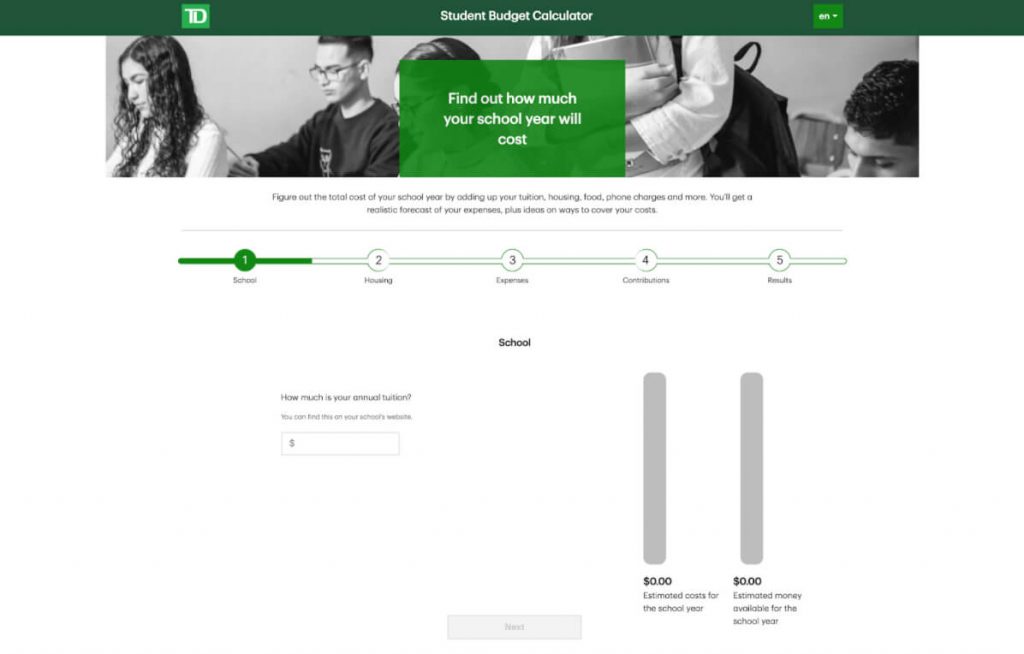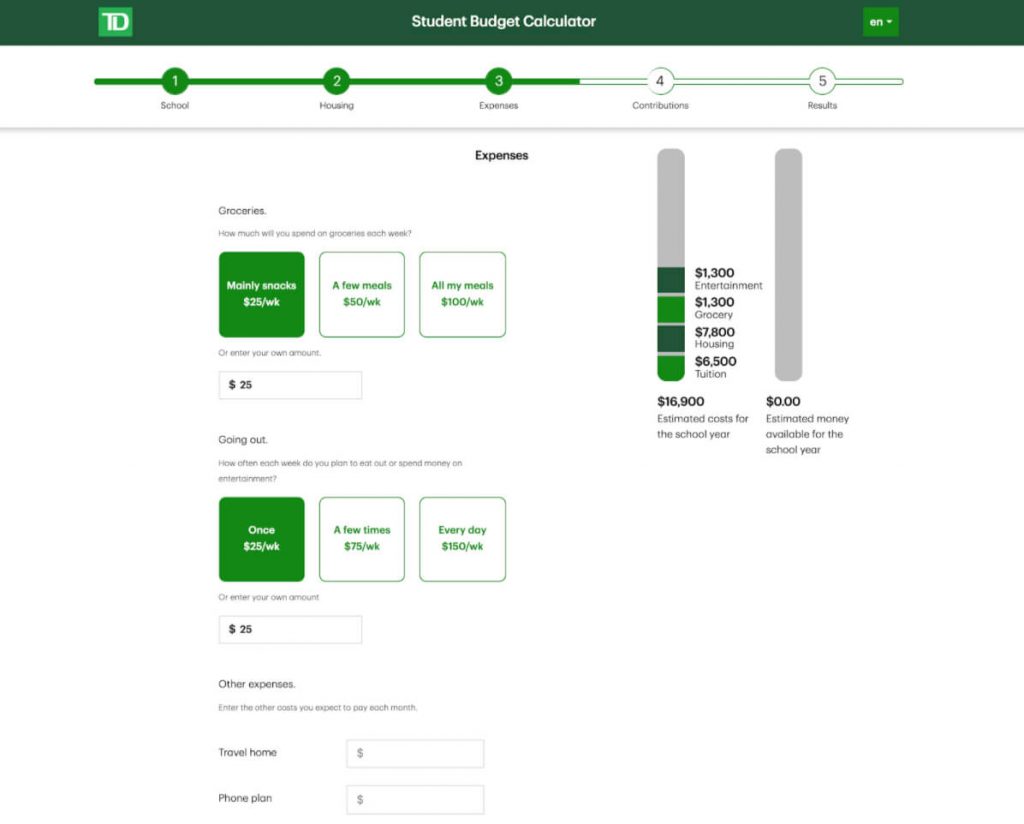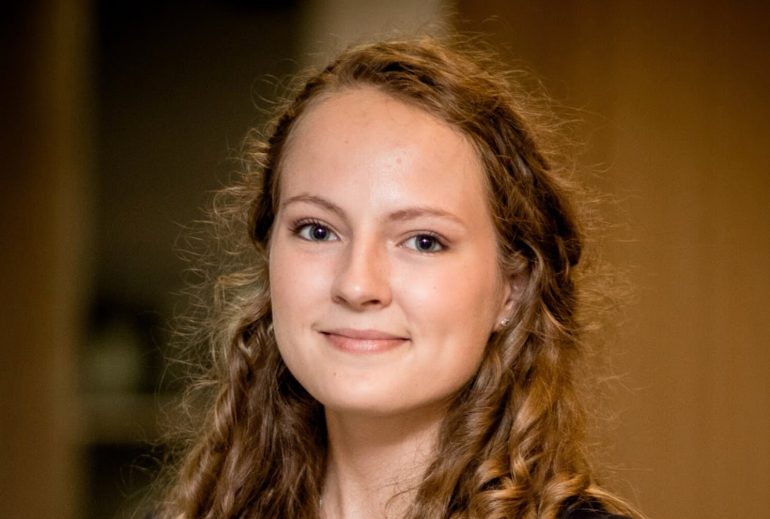In most student co-op placements, students shadow senior contributors and talk generally about career planning. At TD Lab, they ship product.
Speaking with BetaKit, Chris Halabecki, the Lab Leader at TD Lab, and Charly Bax, a Business Analyst summer co-op at TD Lab, explained how TD Lab built a new product driven entirely by – and for – students.
By students, for students
Over six years, TD Lab has evolved from an emerging technology research hub, to a new product development centre for TD Bank, to building student-focused solutions. Halabecki said the TD Lab team recently decided to focus solely on student-focused development because it was a “huge area of opportunity for TD.”
The team also made one other significant change. The Lab would not just be student-focused, but student-driven. TD Lab kept its usual team structure of Developers, Designers, and Business Analysts – with co-op equivalents for all three – but the pivot to student concepts created one other significant change. From ideation, to creation, to user feedback, the co-op students would be building the concepts they wanted to use.
“It doesn’t matter what I think about a student challenge,” said Halabecki. “It matters what a student thinks about a student challenge.”
To ensure the new process worked, Halabecki said TD Lab placed students with a mentor in their discipline, and opened up all meetings to anyone who wanted to attend. The result was that students were present in the decision-making process and encouraged to share their thoughts, explicitly tying student input into TD Lab’s building process.

Hacking for financial literacy
Bax said that TD Lab was her first choice for a co-op placement. As a fourth-year student at Carleton University, she’d interacted with Lab workers before at previous networking events and said she liked how collaborative the team seemed. Her co-op confirmed that assumption.
“It was great to see how closely Designers and Developers work with the Business Analysts,” said Bax.
The first week of every TD Lab co-op term is a hackathon. Students are put into small teams and tasked with a challenge. In 2019, Halabecki said the challenge was to “demystify” a topic that students view as financially complex.
One pair landed on the topic of budgeting. They felt, as students, that existing budget calculators felt like cold spreadsheets requiring a high degree of financial literacy to understand. The pair theorized they could entice students to care more about budgeting if they built a calculator that was visually appealing and guided users through each step of the process. Judges loved the concept, and worked with them to build a simple wireframe to be shared on TD Lab’s internal testing site. From that internal site, every student co-op across TD Bank, as well as students at schools partnered with TD Lab, such as Laurier University, Conestoga College, and the University of Waterloo, could give feedback.
Halabecki said the feedback was so positive from students that TD headquarters decided to build out a fully functioning app that would eventually sit on TD’s main website.
This year, Bax’s challenge was to take the budget calculator prototype and help the team build a full app. TD Lab decided to make its prototype website public, so anyone could share feedback and ideas; Bax was one of the people responsible for collating and analyzing all that new data as a Business Analyst. She focused on collecting student feedback throughout the process, taking on some project management responsibilities for implementing feedback, and connecting with internal stakeholders to give them critical information from students that applied to their role in the build.

Remotely replicating what works
The decision to turn the budget calculator from prototype to official feature came right as COVID-19 hit. As so many other businesses had to contend with this year, that meant having to reorient the team yet again.
“The nature of our team is very much no-walls, highly collaborative, and lots of open sessions anyone is able to join,” said Halabecki, adding that his goal with remote work was to digitally replicate as many elements of TD Lab culture as possible.
For Bax, it meant her first-ever remote co-op. She had to contend with virtual team meetings, calls instead of shared coffees, and digital whiteboarding sessions instead of piling on Post-it Notes. However, Halabecki said TD Lab invested in technology to power all their key processes, and Bax felt the experience was still highly collaborative.
Despite the pandemic, the project moved ahead on schedule and the Student Budget Calculator is now an official TD Bank tool. Halabecki said the team’s ability to produce even during a pandemic was a “testament” to its work ethic. For Bax, the project’s existence – and eventual success – was a clear indication that TD Lab had found the right way to build student-focused tools.
“It was a great opportunity for how much [TD Lab] cares about students,” said Bax. “We could have a real impact.”


